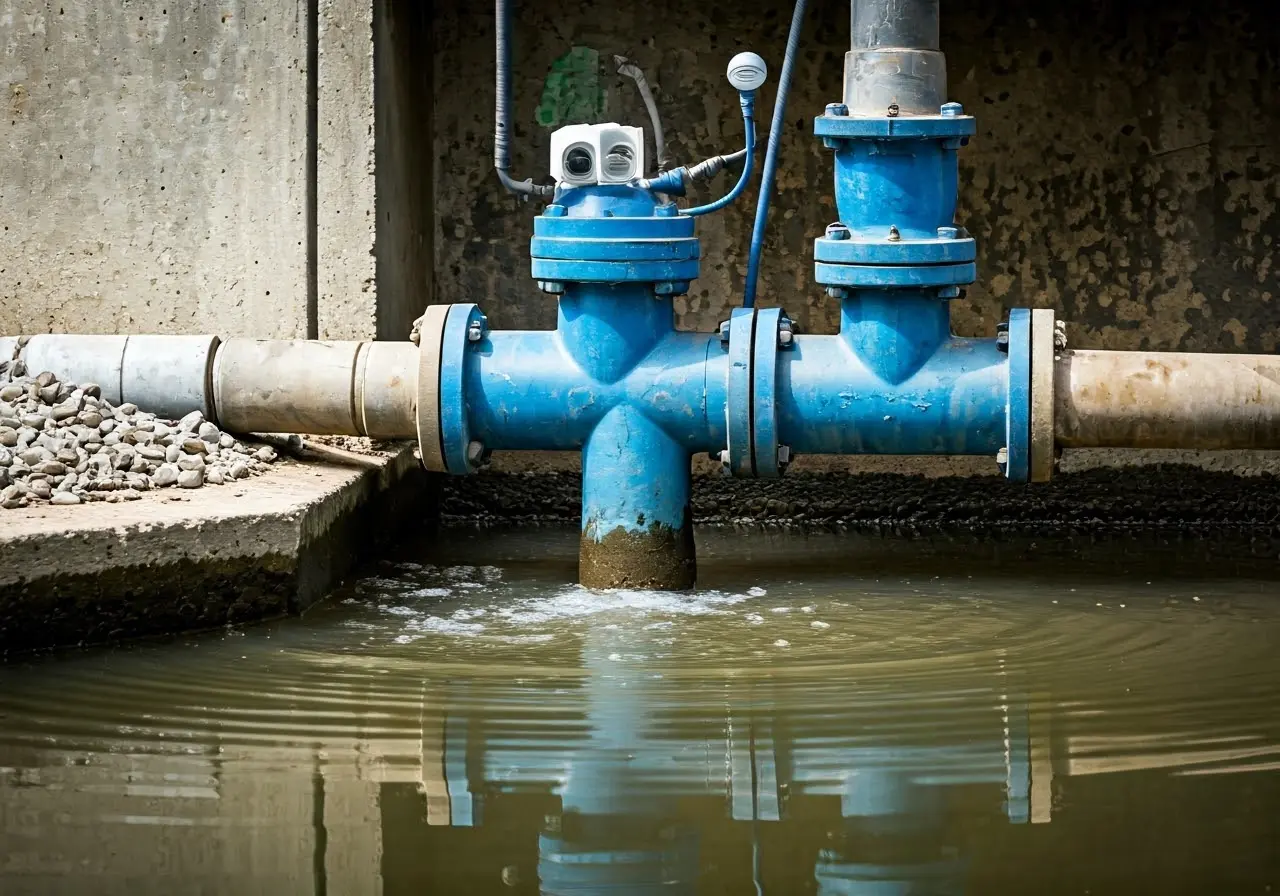In today’s world, ensuring efficient water management is crucial. With the rise of technological advances, smart water solutions are paving the way for innovative approaches to managing this precious resource. In this article, we will explore what sets smart water solutions apart from traditional methods, highlighting their key benefits and features.
Understanding Smart Water Solutions
Smart water solutions leverage digital technologies to monitor, manage, and optimize water resources effectively. These solutions typically involve sensors, data analytics, and automation to provide real-time insights and control. As cities grow and climate patterns shift, managing water resources becomes increasingly complex. Smart water solutions, with their advanced technologies, simplify this task by offering a seamless integration of data and action, helping both utilities and consumers make informed decisions.
Unlike traditional methods, which rely heavily on manual monitoring and historical data analysis, smart water solutions use smart infrastructure that enhances real-time data collection and analytics. For instance, IoT devices play a crucial role in modern water management by continuously monitoring water levels, usage patterns, and even potential contaminants—information that is then processed through advanced algorithms to deliver actionable insights.
An essential feature of smart water solutions is their adaptability. By utilizing predictive analytics, these systems can forecast water demand and potential shortages well in advance, allowing for more effective management strategies. This adaptability is particularly evident in agricultural applications, where smart irrigation systems use real-time data to tailor water delivery to the specific needs of crops, minimizing waste and maximizing yield.
Key Features of Smart Water Solutions
Features like real-time data monitoring, automated system controls, and predictive analytics distinguish smart water solutions from traditional methods. One of the standout elements involves the integration of AI and machine learning, which enhances the ability to predict water usage trends and necessary interventions with remarkable accuracy. This is not just a leap in technology but a paradigm shift in how water resources can be managed, offering responsiveness that traditional systems cannot.
The incorporation of IoT devices, such as smart meters and sensors, allows continuous monitoring of water systems’ conditions, providing alerts on leaks or other anomalies. Unlike conventional systems that depend on periodic checks, smart systems deliver constant oversight, thereby reducing the risk of issues escalating into severe problems.
Moreover, automated irrigation and water-saving valves add an intelligent dimension to water distribution. They adjust water flow based on real-time needs, which significantly reduces wastage and ensures efficient distribution. Such features have made smart water solutions integral to modern water management, particularly in urban and arid regions where water scarcity is a perpetual challenge.
Energy efficiency is another critical aspect. These smart systems mitigate unnecessary water and energy use by ensuring that the infrastructure operates under optimal conditions. Given the significant energy demands of water treatment and distribution, this efficiency can translate into significant savings, both financially and environmentally.
Benefits Over Traditional Methods
Smart water solutions offer numerous benefits, including reduced water wastage, improved leak detection, and enhanced resource allocation. By capitalizing on the diverse technology stack—ranging from AI to IoT—these solutions create a dynamic and responsive water management system. For instance, predictive maintenance enabled by AI can preemptively address equipment failures, reducing unexpected downtimes and operational disruptions.
Improved monitoring capabilities facilitate early detection of leaks, significantly cutting water loss which, according to studies, accounts for a sizable percentage of treated water loss yearly. With smart infrastructure, utilities can swiftly address such leaks, preserving this vital resource and reducing expenditure.
Another advantage of smart solutions is their contribution to sustainability. By optimizing resource use and minimizing wastage, communities can significantly lower their environmental footprint, aligning their practices with global sustainability goals. The detailed reports and insights generated enable policymakers and facility managers to craft more effective conservation policies.
Applications in Various Sectors
From agriculture to urban infrastructure, smart water solutions are being utilized across various sectors. In agriculture, these solutions help optimize irrigation, enhancing crop yields while preserving water. These systems can cater to specific crop requirements, mitigating issues of over- or under-watering that are common with traditional irrigation methods.
In urban settings, smart technologies aid in managing complex water distribution networks, reducing wastage and ensuring more equitable distribution. For instance, smart meters and automation systems allow municipalities to efficiently allocate water, even during peak demand periods, without overburdening the infrastructure.
Industries also benefit from smart water systems by optimizing their water footprint. Manufacturing processes can be adjusted in real-time to align with water availability, maintaining operational continuity and compliance with environmental regulations. This capability is invaluable in areas prone to water scarcity.
Case studies have documented significant successes, such as municipalities reporting up to a 30% reduction in water losses due to enhanced leak detection methods—a testament to the empirical benefits of adopting these smart solutions.
Challenges and Considerations
While promising, smart water solutions also face challenges such as high initial costs and the need for technological infrastructure. It’s essential to assess these aspects critically. Initial investments in hardware and software can be substantial, and a return on this investment necessitates strategic planning and phased deployment.
The integration of new technologies with existing infrastructure is another challenge, often compounded by data interoperability issues. Legacy systems may not seamlessly mesh with new, digital infrastructures, necessitating intermediary solutions or complete overhauls.
Moreover, data security and privacy are paramount concerns as these systems often deal with sensitive information. Ensuring secure data transmission and storage must be a priority to protect against potential breaches or unauthorized access.
Training and workforce development are also critical. Upskilling current employees to handle these new systems can help bridge the skills gap, ensuring that companies maximize the benefits of smart technologies while fostering a culture of innovation and adaptation.
Embracing the Future: The Role of Smart Water Solutions
Smart water solutions offer a sustainable and efficient approach to water management, addressing the challenges of today and preparing us for the future. By embracing these advanced technologies, communities and industries can optimize their water usage and contribute to global sustainability efforts.


